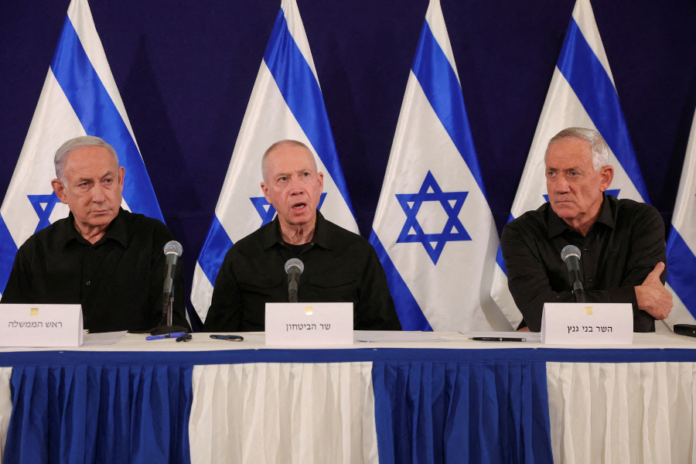While their relatives had gathered around Benny Gantz, Netanyahu’s main rival for the top position, in a Tel Aviv square, Prime Minister Benjamin Netanyahu was inside Israeli Defence Headquarters watching the first release of Hamas-held hostages.
Gantz, an opposition leader and former army chief who joined Netanyahu’s war cabinet last month, adamantly requested on camera that a TV crew leave him alone with the families. Later-released photos captured him giving others in the crowd hugs.
Netanyahu has mostly stayed out of the spotlight while fighting on two fronts: one is against Hamas and the other is for his own political survival. He has faced a massive wave of criticism for his inability to stop the shocking Hamas invasion of Israel on October 7.
The 74-year-old Netanyahu has long upheld his reputation as a security hawk who is strong on Iran and supported by an army that guarantees Jews won’t endure another Holocaust. However, it was under his watch that Israel experienced the bloodiest single incident in its 75-year history.
Some of Netanyahu’s cabinet colleagues have become ostracised by Israelis, who accuse him of failing to stop Palestinian Hamas gunmen from entering Gaza, killing 1,200 people, kidnapping 240 more, and plunging the nation in violence.
At least three of his ministers faced mockery and insults when they appeared in public in different events, highlighting the extent of popular outrage over the mistakes that allowed Hamas to carry out the attack.
Videos released by his office over the weekend featured him in the Defence Ministry’s situation room. Netanyahu paid a visit to Gaza on Sunday. Following his meeting with commanders and soldiers, his administration released pictures of him wearing a flak jacket and helmet.
Netanyahu, also known by his alias “Bibi,” stands to benefit from a conflict that further postpones his corruption prosecution, which has been ongoing for three and a half years, and a state investigation into why Israel, under his direction, was taken by surprise.
Huddled up with generals, he might also be hoping to save face with the way he handled the war and the release of the hostages, all the while denying any accountability and brushing off a question during an unusual press conference on his resignation.
The future of an enclave where Israel went on the attack for seven weeks until striking a temporary truce with Hamas and the release of hostages in exchange for the release of Palestinian inmates from Israel is unknown since Netanyahu has pledged to maintain control over security in Gaza permanently.
According to Gaza health authorities, the conflict has claimed the lives of some 14,800 Palestinians and left hundreds of thousands more homeless.
The longest-serving prime minister in Israel, Benjamin Netanyahu, has pulled through numerous political crises, made multiple comebacks, and, should his coalition hold together, won’t have to run for office again for three years.



